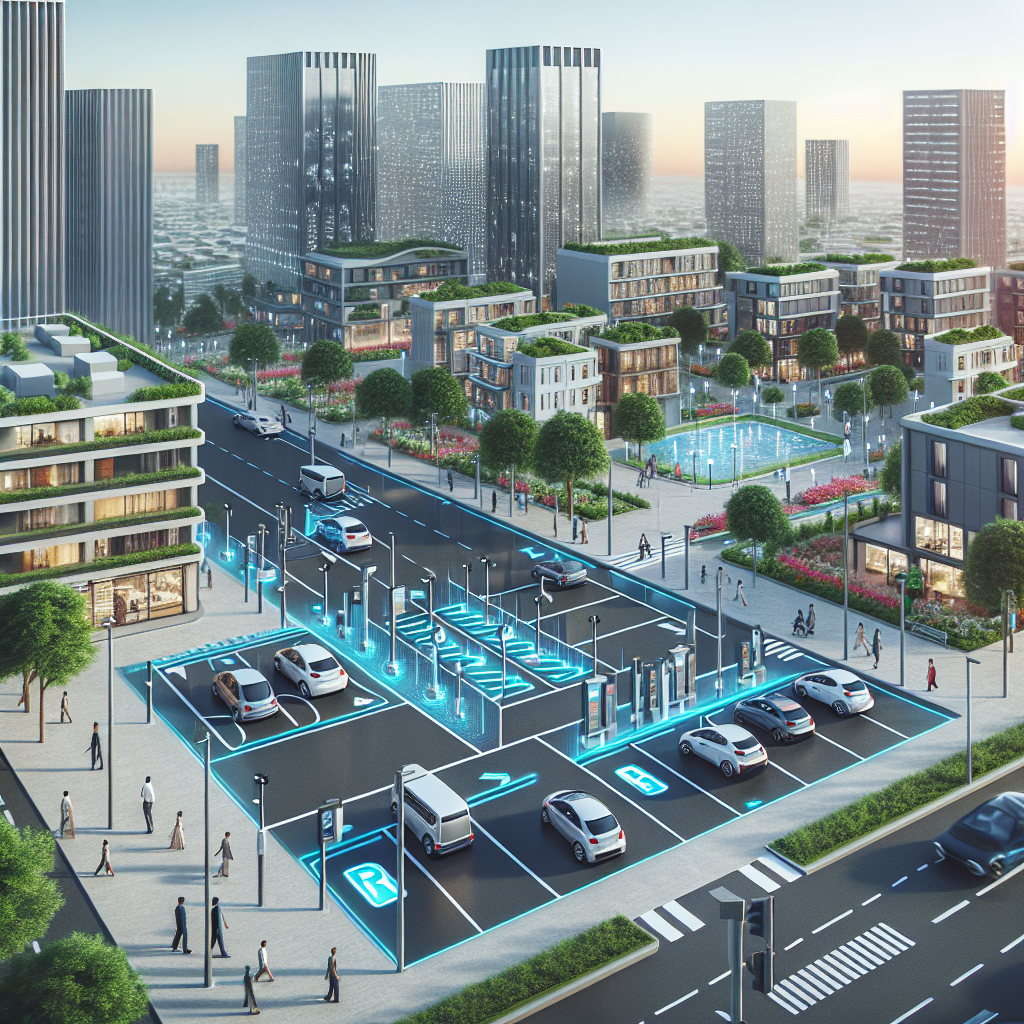
In today's dynamic and competitive business landscape, efficient communications management is a cornerstone of success. Among the numerous facets of enterprise telephony, call parking stands as a remarkable function that supports seamless business communications. Even so, traditional call parking approaches have their limitations, making it difficult to maintain call efficiency in complex environments. Cue Intelligent Call Parking, an innovation that's transforming the face of modern business telecommunications.

Intelligent Call Parking leverages cutting-edge Artificial Intelligence (AI) techniques to overhaul the conventional call parking process. This smart solution automatically redirects and parks incoming calls, thus freeing up communication lines and reducing hold times significantly. Not only does it make call management more efficient, but it also significantly enhances the caller experience—an invaluable advantage in client-centric industries.
The implementation of AI into these systems means that they are better equipped to handle high volumes of incoming calls while simultaneously identifying and prioritizing urgent ones. The AI-managed system learns from call patterns and habits, tuning itself to better serve the unique needs of a business. This capability turns a simple telephony function into a powerful tool for customer service, efficiency, and growth.
In a world of increasing customization, intelligent call parking demonstrates the transformative capacity of AI-driven solutions. It promises a future where the complexities of business communications are simplified, and unleashed business potential is the new normal.
Stay tuned as we delve deeper into the role of AI in call parking and explore the potential implications for businesses worldwide.
In the information driven world, Intelligent Call Parking has taken center-stage in managing complex communication environments. These AI-managed systems utilize algorithms to identify and prioritize calls based on urgency and caller value. Key features of these systems include automated routing, responsive call handling, and advanced caller identification. These features simplify call management and provide efficiencies in customer service.
The AI algorithms used in intelligent call parking are intricate equations of machine learning and deep learning algorithms designed to process the vast amount of call data. They can learn and adapt from each call, progressively improving their service delivery. These algorithms can also identify and flag anomalies in call traffic, which can be vital in preventing or addressing issues promptly.
A major aspect of intelligent call parking is automated routing. Driven by AI, this feature efficiently channels calls to appropriate destinations to optimize productivity and service quality. The AI can analyze call data to project the best-fit route for a call at a given time, hence reducing wait times and increasing customer satisfaction.
Moreover, AI lends a hand in caller identification and prioritization. By scrutinizing every bit of data around a call, from the phone number to the time of day, AI can segregate calls based on their importance or urgency. These systems can recognize a high-value customer or an urgent matter and move them up in the queue. This advanced segmentation boosts business productivity and customer experience.
In conclusion, Intelligent Call Parking, backed by AI, is revolutionizing call handling in complex environments. Its advanced algorithms learn and evolve, leading to better efficiency, productivity, and customer satisfaction. As technology continues to improve, so too will the contributions of AI in this important customer service sphere.
The next-generation Intelligent Call Parking Systems have been designed with integration at the core of their functionality, allowing them to easily integrate with a variety of existing telecommunication infrastructures like VoIP and traditional phone lines. This ensures that there is minimal disruption and maximum operational continuity for businesses adopting these AI-managed systems.

The integration of AI call parking solutions with existing infrastructures enables the intelligent routing of calls. By singling out and park incoming calls, these systems allow businesses to handle high call volumes efficiently without requiring additional resources, adding significant value to the current telecommunication setup. The compatibility with both analog and digital systems only further extends the reach and applicability of these solutions.
Not just restricted to VoIP or traditional phone lines, these AI-managed systems also exhibit a high level of compatibility with various mobile networks. They can tap into 4G and 5G network infrastructures, offering more ways to manage calls and route them to the most applicable location or recipient. This increased compatibility contributes towards a more flexible, scalable, and future-proof call management system for businesses around the world.
Tests and trials conducted by service providers demonstrate that the integration process of AI call parking with existing systems is seamless and non-disruptive. There is practically no downtimes during the integration process, so businesses can be assured of continued service. Moreover, the installation and setup of intelligent call parking proves to be a quick and simple process, minimizing operational disruptions and downtime.Case studies reveal the ease and speed of integration that isn’t just promising but also set the stage for the future of telecoms, bringing us one step closer to a more efficient, automated, and AI-driven telecommunication environment.
In an environment where efficiency and customer satisfaction are paramount, harnessing the power of artificial intelligence (AI) for call parking can offer a litany of advantages. Intelligent call parking, or AI-managed call parking, uses advanced algorithms to efficiently manage calls, enhancing both customer service metrics and operational efficiency.
Firstly, utilizing AI-managed call parking precludes the hassles tied to manual call parking. Instead, the system automatically routes or parks calls based on predetermined rules, reducing the onus on operators. It thereby enhances operational efficiency by minimizing errors and expediting call handling.
Secondly, AI-managed call parking enables businesses to personalize customer interactions. It gleans insights from past interactions, thus customizing services for individual callers and effectively augmenting customer service metrics. Such tailored experiences can greatly elevate customer satisfaction, as shown by multiple statistical analyses.
Moreover, with AI at the helm, systems can easily handle high call volumes even in complex environments. In the event of a sudden surge, an AI-managed system can smartly prioritize and park calls, ensuring smooth function. This ability to manage traffic optimally is pivotal for stress-free communication, and an asset for organizations, especially those operating within bustling environments.
Notably, these systems also provide profound analytics. By tracking and analyzing all interactions, they offer valuable insights, facilitating strategic decision-making. They can predict peak calling hours, identify persistent issues, and assess handlers' performance, all crucial for improving and streamlining operations.
In summary, integrating AI-managed call parking equips organizations with the capability to handle calls more efficiently and customize customer interactions, inevitably leading to improved customer satisfaction and operational efficacy. So why wait? Embrace intelligent call parking, and drive your business towards unprecedented success.
The capabilities of intelligent call parking systems have been brought to the forefront in diverse industrial landscapes. These AI-managed systems not only streamline complex internal communication workflows but also substantially improve the customer satisfaction levels.

In the healthcare sector, for instance, the Mayo Clinic reported a notable reduction in response times following the integration of an AI-managed call parking system, resulting in improved patient satisfaction source. The intelligent system facilitated efficient call routing, enabling the medical staff to deliver timely consultations and treatments.
In the finance landscape too, intelligent call parking systems have made inroads. For instance, the Royal Bank of Scotland observed a 20% increase in customer engagement as a result of implementing one of these systems source.
Another remarkable instance emerges from the retail sector, where Walmart adopted AI-managed call parking. The system provided improved customer service by efficiently managing large call volumes during peak hours and holidays. The outcome was a marked boost in customer satisfaction scores source.
These real-world applications underscore the potential of intelligent call parking systems in managing complex environments. By effectively addressing internal and external calls, these systems enhance workflow efficiency and customer satisfaction. As AI technology continues to evolve, it is reasonable to expect even more sophisticated call handling capabilities in the future.
The field of call parking, particularly AI call parking, is rapidly evolving and progressing. The impact of groundbreaking technologies such as machine learning and natural language processing continues to streamline this important business function. Looking into the future, several exciting trends are anticipated to shape the landscape of this sector significantly.
One such crucial development is the deep integration of machine learning. AI call parking systems are increasingly leveraging machine learning to understand complex patterns and optimize the call parking process. The system goes beyond just automation, learning from historical data to assure better intelligence and decision-making, even in intricate environments.
Another future trend in this space is the enhanced utilization of natural language processing (NLP). This technology enables AI call parking systems to understand, interpret and respond to human speech in a more sophisticated way. The integration of NLP transforms the customer experience as it supports dynamic and personalized interaction.
AI self-monitoring and adaptive capabilities are also projected to rise in the near future. Automatic anomaly detection can alert administrators about potential issues before they become serious problems, greatly improving system reliability. Search for AI self-monitoring to learn more about this exciting development.
Lastly, we should expect to see growth in predictive analytics. AI call parking systems in the future may be able to predict peak times and adjust accordingly, assuring optimal resource utilization. This trend truly exemplifies the potential of predictive analytics in transforming business operations.
In conclusion, AI call parking will continue to evolve, incorporating advanced technologies and offering robust, intelligent solutions for complex environments. This will revolutionize the workflow for businesses, offering enhanced efficiency and better user experiences while meeting the demands of our ever-connected world.
Start your free trial for My AI Front Desk today, it takes minutes to setup!








